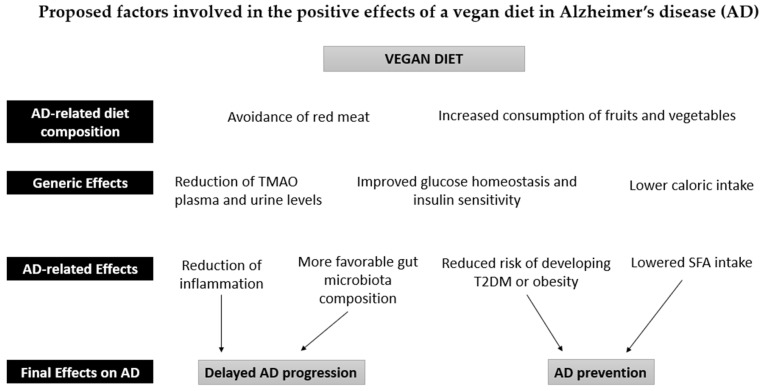Figure 1.
Proposed factors involved in the positive effects of a vegan diet in Alzheimer’s disease (AD). The intake of fruits and vegetables in a vegan diet is associated with a reduction in inflammatory processes and a normalization of the gut microbiota due to the high antioxidant, fiber, and polyphenol content. The absence of red meat also leads to a reduction in Trimethylamine N-Oxide (TMAO) in plasma and urine. These effects can counteract the development of AD pathology. Furthermore, the reduction in caloric intake reduces the risk of obesity and type 2 diabetes (T2DM), thus contributing to the prevention of AD, together with the reduced intake of saturated fatty acids (SFA).

